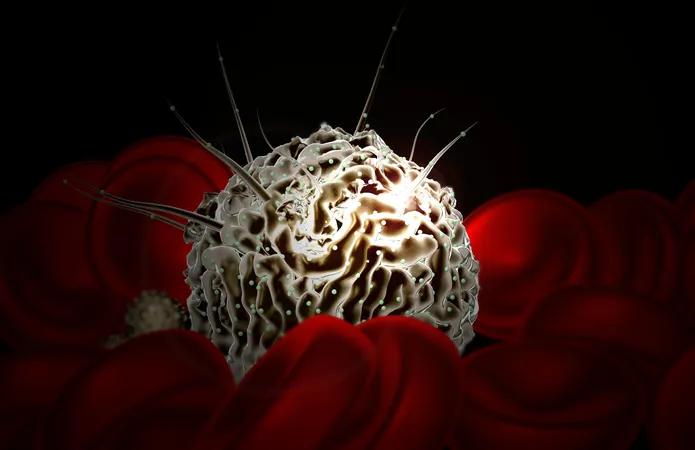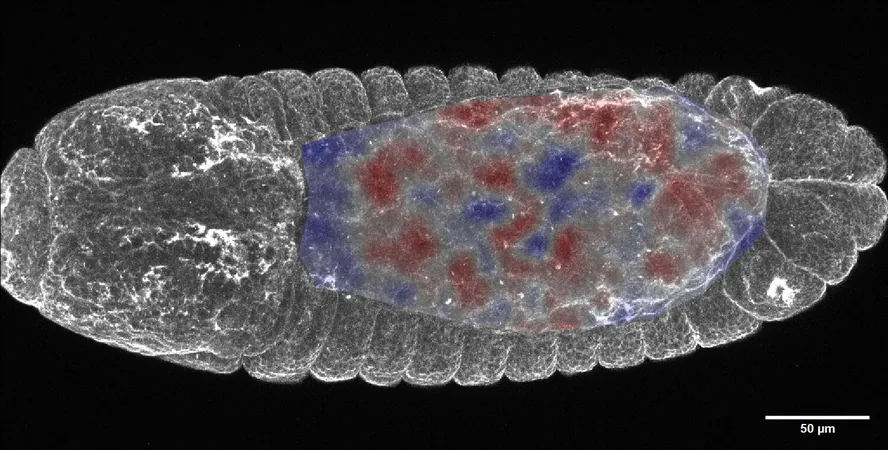
Breakthrough Study Reveals How Our Immune System Battles HPV – A Key to Cancer Prevention?
2025-01-22
Author: Ming
Breakthrough Study Reveals How Our Immune System Battles HPV – A Key to Cancer Prevention?
A groundbreaking new study has shed light on the complex interactions between the human immune system and the infamous human papillomavirus (HPV), which is responsible for over 600,000 new cancers globally each year, with cervical cancer being the most prominent. While it's known that chronic HPV infection can lead to cancer, the study emphasizes that a whopping 90% of infected individuals clear the virus naturally within two years, maintaining a very low risk of developing related diseases.
Despite this, there has been a surprising lack of understanding regarding the characteristics of a healthy immune response to HPV and the fluctuations in viral loads among affected individuals. This new research could pave the way for better screening, treatment, and even vaccine strategies for HPV-related cancers.
Led by Nicolas Tessandier from France's National Centre for Scientific Research (CNRS), the study involved 189 young women from Montpellier, who were monitored over a period of two years at bi-monthly clinic visits. The researchers meticulously tracked viral loads, antibody levels, and various immune cells in the cervical area. This intensive monitoring offered “unprecedented resolution to capture the nature of these infections,” the authors noted.
Diving into Immune Mechanisms
Published in the scientific journal PLOS Biology, the findings revealed intriguing patterns in the immune response to HPV. While non-persistent infections exhibited a rapid increase in viral load that stabilized within two months and lasted up to nearly two years before diminishing, the body's innate immune response showed signs of being effective in combating milder infections. Notably, a specific protein associated with inflammation and immune responses, called CXCL10, was shown to be linked to such infections.
Furthermore, the researchers discovered significant correlations between the activation of T cells—an essential component of the adaptive immune system—and the overall viral load. This suggests that certain infections may successfully evade the body’s initial defenses, leading to more severe, long-lasting conditions that require a tailored immune response.
Towards Targeted Treatments and Prevention
The implications of this study are profound. By understanding the dynamics of viral load and immune response, healthcare providers could refine screening techniques for HPV. Moreover, these insights could lead to the identification of new drug targets and biomarkers that could potentially revolutionize how HPV-related diseases are treated.
Currently, the study followed only four participants for extended periods, indicating that more research is necessary to fully comprehend the nuanced differences between chronic and non-persistent HPV infections. However, as research continues, questions arise: How does HPV’s evolutionary adaptation within the host relate to cancer development? What other secrets lie within the immune response that could help combat this pervasive virus?
As we stand on the brink of new discoveries in HPV research, one thing remains clear: better understanding how our immune system interacts with HPV could hold the key to preventing not just cervical cancer, but a host of other HPV-related illnesses. Stay tuned for more updates on this vital research!



 Brasil (PT)
Brasil (PT)
 Canada (EN)
Canada (EN)
 Chile (ES)
Chile (ES)
 Česko (CS)
Česko (CS)
 대한민국 (KO)
대한민국 (KO)
 España (ES)
España (ES)
 France (FR)
France (FR)
 Hong Kong (EN)
Hong Kong (EN)
 Italia (IT)
Italia (IT)
 日本 (JA)
日本 (JA)
 Magyarország (HU)
Magyarország (HU)
 Norge (NO)
Norge (NO)
 Polska (PL)
Polska (PL)
 Schweiz (DE)
Schweiz (DE)
 Singapore (EN)
Singapore (EN)
 Sverige (SV)
Sverige (SV)
 Suomi (FI)
Suomi (FI)
 Türkiye (TR)
Türkiye (TR)
 الإمارات العربية المتحدة (AR)
الإمارات العربية المتحدة (AR)